
We think we know well the food that we usually eat. We know that fast food is bad for our bodies and that sugar and food additives are also bad for our bodies. If you ask people why these things are bad, most of them don't answer concretely. The most commonly consumed foodstuffs are chocolate, candies, junk food, soda, ice cream and instant noodles.More than 50 percent of Koreans die due to cancer, diabetes and heart disease. This situation is not only in Korea, but also in other advanced nations. The whole world is in the same situation. A noticeable thing is that these diseases were rare jus
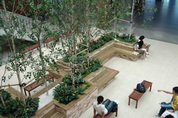
On March 22, the 3C (Campus-wide Communication Culture) campaign started. This campaign has the goals to improve the feeling of belonging to the community, increase communication between students and the university, and increase studying efficiency. Keimyung University began this campaign with several open spaces on campus, mutual understanding among the Keimyung family, and activities for the student community.The university wants students to communicate, so the university made communication spaces in some colleges’ lobbies. We checked the campaign’s progress and if the campaign has been effe

The recent hit movie His Voice is a true story about a kidnapping which happened in 1991. Actually, the real criminal has not been caught yet. However, if we find the kidnapper, we can’t punish him now because the limitation for prosecution of a kidnapping case is 15 years. Therefore, police can’t apply criminal procedures. The limitation for prosecution became invalid in January 2006.Many people debate the limitation for prosecution. Some people say the limitation for prosecution must remain in Korean law. Other people say the limitation for prosecution should be abolished in criminal procedu
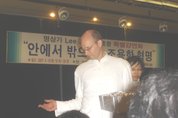
End of the World Predicted at Meditation LectureOn April 19, a lecture organized by the meditation group Brahma Kumaris (BK) was held on the second floor of Bauer Hall. The lecture, entitled "From the Inside Out - A Silent Revolution,” was conducted by Australian BK member Lee James and translated into Korean by fellow BK member Professor Ryu Jeong-hee from the Graduate School of Interpretation and Translation, who also organized and promoted the event. Mr. James was visiting Korea on a tourist visa when he gave the lecture.In the email invitation sent to Korean professors, Mr. James was descr
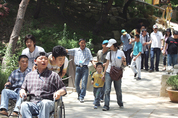
As society has developed, many people complain of a feeling of alienation and a loss of a sense of identity. Furthermore, it increases the poor in spirit. At this point, what should we do? We can solve it by having volunteer activities. It makes a better society by sharing love with each other. The culture of giving is spreading all over the world. More and more people are donating their time to serve as volunteers. However, there also are students who haven’t volunteered. They say, “I really want to but I have no time,” “I don’t know what I should do,” and “It looks difficult.” Although you m

The world consists of countries, and each country consists of families. A family is the smallest unit of people in the world. Governments make efforts to serve their countries and develop. What a government intends is to make a healthy and happy society which is based on families’ happiness. If people in families are not happy, then society is not happy. To protect society, the Korean government has a censor system called hojuje (householder system). “Ho” means house and “ju” means owner. Hoju means the head of the family, and the hoju system is used to file the official documents of all Korea
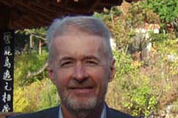
Editorial note: This lecture, organized and sponsored by the Keimyung Graduate School of Early Childhood Education and the Daegu & Gyeongbuk Division of Korean Society for Early Childhood Education, was given by Dr. Daniel J. Walsh (Curriculum & Instruction, University of Illinois at Urbana-Champaign) on Oct. 23 at Hengso Museum. The Gazette carries the lecture in three parts.The Language of the Simple Things of LifeThe philosopher Richard Rorty (1989) once asked the eloquently simple question, “Who are we?” When he asked this question, he was referring to countries in Europe during the World
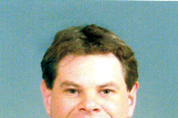
October 9 just happened to be the day I realized I had no idea for this column. Luckily for me, that was also the day that Kim Jeong-il decided to test his supposed nuclear bomb. For a time, news of the North’s test dominated the world’s headlines as the world waited to see what would happen next. How would the world react? How would Kim Jeong-il react to the world’s reaction? That was also the same week that Ban Ki-moon was appointed to be the next United Nations Secretary-General. With the Korean Peninsula the centre of the world’s attention, it seemed like the topic of my column was chosen